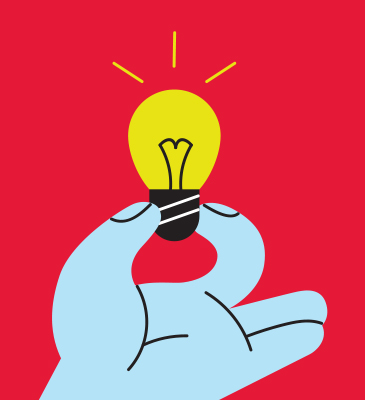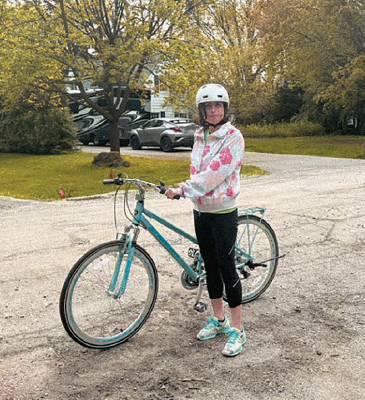OneWATER, a new organized research unit (ORU) at York University, is in its infancy but is already driving positive change.
Corey Allen

Launched last fall, OneWATER sent delegates to the United Nations in New York within its first few months of operating, where its members headlined a panel at the UN Water Conference. During the conference, OneWater announced its researchers will play a key role in the delivery of the Water Academy – a collaborative education program between York, several other academic institutions and UNITAR (United Nations Institute for Training and Research).
OneWATER is an acronym that details the combined expertise of its members –
W: water management
A: artificial intelligence
T: technologies
E: education and sustainability
R: resource recovery and reuse
“OneWATER was created to bring together water experts from all over campus as well as partners and communities and go beyond what we can accomplish as lone researchers,” says director Sylvie Morin, professor in the Department of Chemistry, Faculty of Science. “We didn’t anticipate this much momentum.”
Initially proposed as an ORU by Satinder Brar, professor and James and Joanne Love Chair in Environmental Engineering, Department of Civil Engineering, Lassonde School of Engineering, OneWATER brings together York University’s experts on water-related issues in multiple disciplines across several Faculties and units.
From civil engineering to water governance to environmental justice and more, OneWATER is the central hub at York for leading water-related experts to unite, conduct interdisciplinary research and generate knowledge on pressing issues, like water security, flooding and sanitation. This work has the potential to significantly inform and influence public policy.

For Morin, OneWATER creates a platform for York researchers to tackle bigger questions that would otherwise be unable to be fully explored within a single department or Faculty.
“We have something very special here,” she says.
“As a collective, OneWATER can conduct higher-level, interdisciplinary and transdisciplinary research at York, take a significant leading role in Canada and compete for more significant grants. As an ORU, we are also better positioned to work on larger-scale projects with international collaborators.”
This summer, Morin will begin work on her first project under OneWATER.
Morin, along with Stephanie Gora, an assistant professor in the Department of Civil Engineering, and Yeuhyn Kim, a PhD candidate co-supervised by Morin and Gora, will develop new materials for sustainable wastewater treatment focusing on pesticides and pharmaceuticals.
More new Organized Research Units at York
Centre for Artificial Intelligence and Society (CAIS)
CAIS unites York researchers who work to understand the theory and practice of AI systems, governance, and public policy. An affiliate of Connected Minds, the Centre has two units: The Intelligent Systems Unit and the Public Policy Unit. The Intelligent Systems Unit is led by Professor James Elder and uses machine learning, data mining and computer vision science to tackle issues in healthcare, smart cities, and sustainability. The Public Policy Unit, led by Professor Pina D’Agostino, examines the risks and benefits of AI technologies, and how this balance can be managed through practice, policy, and governance.
Institute for Technoscience & Society (ITS) approved by Kean Birch
ITS is a global hub of critical and interdisciplinary research and knowledge mobilization on the relationship between technoscience (the interconnected relationship between science and technology) and society, particularly the configuration of social power underpinning scientific claims, medical practices, emerging technologies, and sites of innovation. The Institute leverages York’s renowned expertise on these societal issues and has four thematic research clusters, including Technoscientific Injustices, Technoscientific Economics, Technoscientific Pasts & Futures, and Technoscientific Bodies & Minds. ITS is an associated research unit of Connected Minds and aims to support York researchers as they promote socially responsible and inclusive technoscience.
Centre for Integrative and Applied Neuroscience (CIAN)
Neuroscience – the study of nervous system function — aims to explain the biological basis of human behavior in health and disease. One in three Canadians will experience a brain-related health disorder. CIAN is an associated research unit of Connected Minds and mobilizes research to address health, education, industry, and other applications important for the global community.
Manufacturing Technology Entrepreneurship Centre (MTEC)
MTEC integrates critical aspects of interdisciplinary research in manufacturing, technology, and entrepreneurship to reinforce research intensification by developing cutting-edge technologies and enterprises to address important global challenges. Part of the Lassonde School of Engineering, MTEC acts as a regional hub for technology innovation and leverages York’s Living Lab and BEST’s technology incubator. The Centre facilitates the design-prototype-test cycle and activates academic and industry partnerships to accelerate the process of bringing new technology solutions to the Canadian and world markets.
York Emergency Mitigation, Engagement and Governance Institute (Y-EMERGE)
Y-EMERGE specializes in world-leading and multidisciplinary research and teaching in disaster risk reduction, emergency preparedness, response, and recovery. Y-EMERGE works to transform the way societies understand, conceptualize, analyze, manage, and govern crises, disasters, and emergencies. The Institute combines York’s expertise in a wide variety of disciplines, including mathematical modelling, social and behavioural study, geospatial technology, AI, participatory research, and the humanities and social sciences. Y-EMERGE is a global leader in its on community-engaged scholarship, real-world and need-driven research, and evidence-based training for effective emergency management.
Read more

Meet York U’s Commercialization Fellows
Four budding researchers aim to bring innovative products to market

New organized research unit of early success, impact
A new Organized Research Unit (ORU) in its infancy but is already driving positive change

York health researcher brings a trauma-informed lens to use sport for good
How women find empowerment and independence on two wheels

York engineers develop mobile app to improve the safety of city cycling
Using tech to help take the yikes out of bikes
